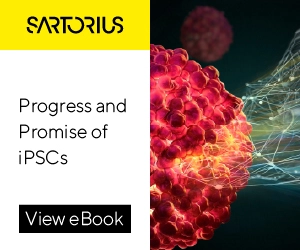Introduction
Artificial intelligence (AI) has stormed the biotech industry with its potential to revolutionize drug discovery. By streamlining research, reducing costs, and accelerating timelines, AI-powered companies are changing how we find and develop new medicines. This report explores how five trailblazing companies—Atomwise, Cradle, Exscientia, Iktos, and Insilico Medicine—are using AI to bring new therapies to patients faster than ever before.
- Introduction
- The Breakthrough Power of AI in Drug Discovery
- Atomwise: Rationalizing Drug Discovery
- Cradle: Accelerating Protein Engineering
- Exscientia: Pioneering Precision Oncology
- Iktos: AI for Small Molecule Discovery
- Insilico Medicine: Fully Integrated Drug Discovery
- AI Market Growth and Future Implications
- Conclusion
The Breakthrough Power of AI in Drug Discovery
The COVID-19 pandemic underscored the urgent need for faster drug discovery. AI stepped up, helping researchers identify promising treatment candidates swiftly and accurately. From antibiotics to vaccines, AI is now essential for efficiently discovering life-saving drugs. The technology was recently credited with discovering abaucin, a new antibiotic that combats multi-drug-resistant bacteria. This significant step demonstrates the potential of AI to combat modern health threats.
Atomwise: Rationalizing Drug Discovery
Atomwise aims to make drug discovery more rational and efficient. Their AtomNet platform incorporates deep learning to analyze over three trillion synthesizable compounds and uncover promising drug candidates. A landmark deal with Sanofi allowed Atomwise to harness their technology to target five critical areas in computational drug research. They also recently nominated their first AI-driven drug candidate—an orally bioavailable TYK2 inhibitor targeting inflammatory diseases. This marks a turning point as they approach an Investigational New Drug (IND) submission in the latter half of 2024.
Cradle: Accelerating Protein Engineering
Dutch startup Cradle uses generative AI to empower biologists to design enhanced proteins for bio-based products. Their technology relies on massive protein sequence datasets and their in-house wet lab data to build and train AI models. This comprehensive approach enables rapid design of enzymes, vaccines, and antibodies, among others. With support from leading partners like Janssen, Twist Bioscience, and Novozymes, Cradle is now accelerating research in 12 R&D projects to deliver protein solutions with exceptional specificity and stability. A recent $24 million Series A funding round demonstrates the industry’s faith in Cradle’s potential.
Exscientia: Pioneering Precision Oncology
Exscientia has solidified itself as an industry pioneer, creating the first-ever functional precision oncology platform guided by AI. They’ve shown that their precision oncology approach can identify treatments that significantly improve patient outcomes. Their AI-designed drug GTAEXS617 is already in phase 1/2 clinical trials to treat solid tumors like breast and lung cancer. Notable partnerships with Sanofi and Merck have provided Exscientia with the resources needed to research and develop new candidates. Their collaboration with Merck could yield up to $674 million in value, focusing on critical areas like oncology and immunology.
Iktos: AI for Small Molecule Discovery
Paris-based Iktos is using AI to speed up small molecule drug discovery while increasing clinical success rates. They’ve validated their approach through over 50 academic and industrial partnerships with pharmaceutical giants like Merck, Pfizer, and Janssen. Their product suite—DockAI, Makya, Spaya, and Spaya API—fosters productivity at each step of the drug discovery pipeline. Their advanced synthesis planning tool, Spaya, optimizes access to vast virtual molecule libraries. A €15.5 million financing round enables them to combine AI with chemical synthesis automation, enhancing the entire discovery timeline.
Insilico Medicine: Fully Integrated Drug Discovery
Insilico Medicine uses AI to integrate biology, chemistry, and clinical trial analysis in their Pharma.AI platform. Their goal is to accelerate the entire R&D process and bring life-saving therapies to patients more quickly. This vision was realized when their INS018_055 drug for pulmonary fibrosis became the first AI-designed drug to enter phase 2 clinical trials. Insilico is also developing therapies for COVID-19 and solid tumors. Their partnership with Sanofi, valued at $1.2 billion, leverages Pharma.AI to discover disease targets and predict trial outcomes.
AI Market Growth and Future Implications
The global AI drug discovery market was valued at $1.1 billion in 2022 and is forecast to grow annually by 29.6% until 2030. A surge in demand for new therapies, coupled with the increasing manufacturing capacity of the life science industry, has boosted the demand for AI solutions in drug development. As more companies enter the field, the biopharma industry will see even greater efficiency, consistency, and scalability in drug discovery.
Conclusion
AI has swiftly proven to be a game-changer in drug discovery, with companies like Atomwise, Cradle, Exscientia, Iktos, and Insilico Medicine leading the charge. By improving accuracy and efficiency, these companies are accelerating the process of bringing life-saving medicines to patients. Their successes pave the way for new opportunities and reinforce the significant potential of AI in reshaping the future of healthcare. The transformative impact of AI on drug discovery is only beginning, and its rapid adoption could usher in a new era in medicine that benefits us all.





